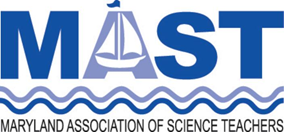Applications and Research Laboratory
10920 Clarksville Pike, Ellicott City, MD 21042, USA
Don't miss out on this amazing opportunity!!
Registration - Open Now:
$20 - Early Bird Registration by 10/1
$25 - Advance Registration after 10/1
Professionally and personally - an experience you'll be glad you attended!
Disciplinary Core Ideas: Looking at the big picture in our content: The Next Generation Science Standards are composed of three dimensions that have been developed as a framework for K-12 science education in order to fulfill the vision of what it means for students to be proficient in science. The science and engineering practices are the skills with which questions are answered and problems are solved. The crosscutting ideas are a means by which to coherently link different domains of science and to interrelate knowledge from multiple fields of science. The disciplinary core ideas focus on the content to be taught and what is to be assessed. It is these behaviors and skills, the development of a scientifically-based view of the world, and the ability to apply and extend knowledge that students will need to take with them into college and careers. Workshops and sessions in this strand will emphasize the practices, crosscutting concepts and disciplinary core ideas in science and engineering.
Science & Engineering Practices: Implementation within the Classroom Setting: Engineering is a systematic practice of design to find solutions to real-world problems. Technologies results when engineers apply their understanding of the natural world and of human behavior to design ways to satisfy human needs and wants. Workshops and sessions for this conference strand will engage participants in engineering and technology education activities for classrooms at all levels.
Crosscutting Concepts: Finding ways to bridge gaps across content areas and within Science: Crosscutting concepts have application across all domains of science. As such, they are a way of linking the different domains of science. They include patterns; cause and effect; scale, proportion, and quantity; systems and system models; energy and matter; structure and function; and stability and change. The Framework emphasizes that these concepts need to be made explicit for students because they provide an organizational schema for interrelating knowledge from various science fields into a coherent and scientifically based view of the world.
Keynote Speaker
MAST and TEEAM are pleased to announce that Dr. Danielle P Hillard will be headlining the Fall 2023 Conference.
| Danielle P Hilliard is an Aerospace Systems Engineer and the Branch Head for the Concept Design and Realization Branch at Johns Hopkins University Applied Physics Laboratory. In this role she enables the development of manufacturing science and realizes this capability in the form of spacecraft and DOD hardware- electrical and mechanical for use by the US government. Prior to her work in the Concept Design and Realization branch, Danielle was the lead for the premier early STEM career development opportunity at APL known as the Discovery Program. While in this role she was also dual hatted as a part of the APL Space Sector as an Acting Assistant Branch Supervisor Space Flight Systems Engineering. During her Space Flight Branch role. Danielle has led an AMDS Systems Engineering group, and held a number of Program Manager (PM) and Project (Pjm) Manager positions. Her responsibilities across a more than 28- year career as an Aerospace Systems Engineer have included technical analysis and systems engineering in support of existing and new capabilities for our US servicemen and women. Her impact has been seen in her roles developing the Technical Performance Metrics for Aegis BMD, the approach for performance evaluation for the Missile Defense Agency and her technical knowledge and leadership guided APL’s contributions to the first successful flight test missions. Before joining JHU/APL, Danielle was an engineer within the NAVSEA Program Executive Offices (PEO). Danielle early in her career held engineering positions in space and business jet aircraft companies, while performing duties as a US Army reservist. She holds the following degrees: B.S. in Aerospace Science Engineering, a M.S. in Information Technology and a PhD in Technology Management. Her accolades include awards from Navy and Missile Defense Agencies and she was BEYA 2012 Engineer of the Year Recipient and most recently she was a recipient of the 2022 Women of Color Technology All Stars Award and National Society of Women Engineers Advocacy in Engineering Award 2021. She is a member of several professional societies; serves on several STEM/Community organization boards and participates as a mentor to future and current engineers and scientists. Finally, she is a wife and mother of 3 young adults. |
Lunch and Learn Bring your lunch and join MAST and TEEAM’s Lunch and Learn speaker Dr. Jennifer Rachic for an informative session on the 3 R’s. Curious about the 3 R’s? Join us and learn about them. Check the schedule for more information on this session. |
| Dr. Jennifer Rachic is a teacher with Calvert County Public Schools teaching at the Career and Technology Academy. She has been a teacher for 12 years and a nurse for 25 specializing in Intensive Care and Hospice Nursing. She teaches in the Academy of Health Professions program, a Career and Technical Education (CTE) pathway that trains students wishing to pursue careers in healthcare upon graduation. Dr. Rachic holds Doctor of Nursing Practice (DNP) and Master of Science in Nursing (MSN) degrees specializing in Clinical Nursing Education and recently earned her National Board Certification in CTE. In 2021, she was named Calvert County Public Schools Teacher of the Year. Serving as the Mentor Teacher in her building, Dr.Rachic helps train new teachers in Career and Technical Education. She specializes in curriculum design and instruction and is passionate about helping students pursue their futures as healthcare professionals. Dr. Rachic loves to run, visit Disney World, and spend time watching her boys play basketball and lacrosse. She lives in Calvert County with her husband and 3 sons. |
- Home
- MAST and TEEAM Fall Conference 2023



